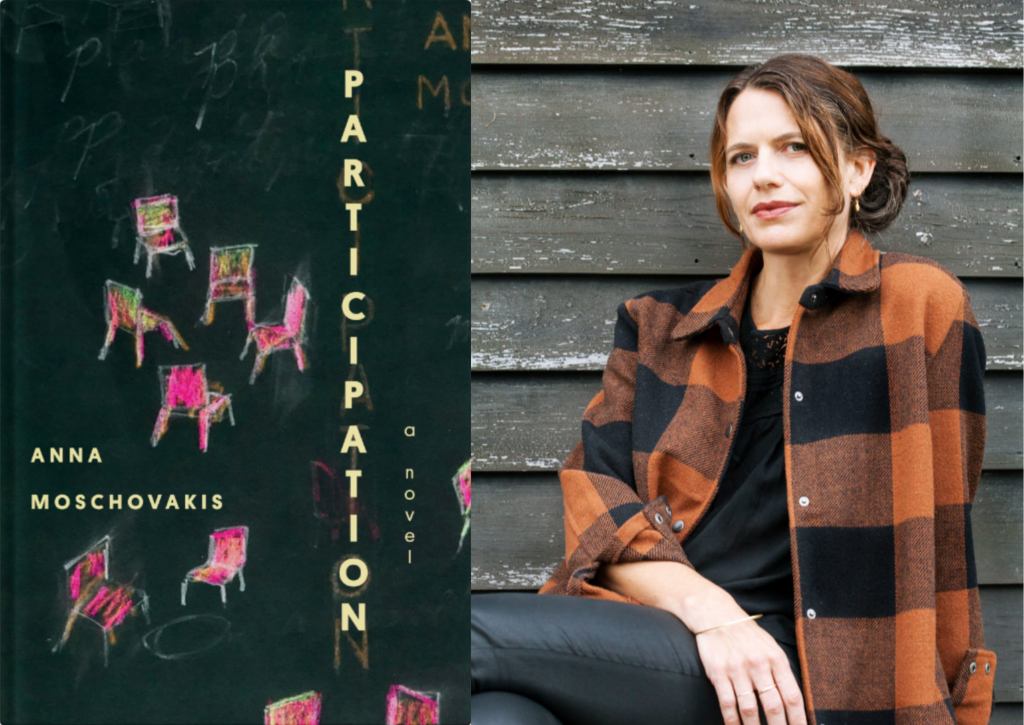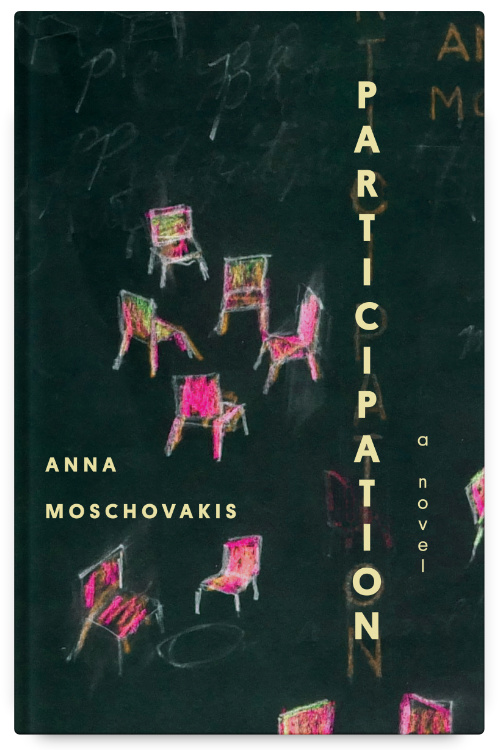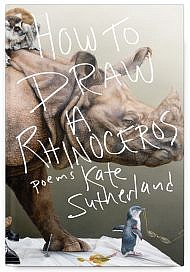Fall 2022 Fiction Preview: Participation by Anna Moschovakis

Today’s Fall 2022 Preview features Participation by Anna Moschovakis!
In this latest novel from Moschovakis, acclaimed writer, and winning translator of the 2020 International Booker Prize, two reading groups, Love and Anti-Love, convene digitally amidst political upheaval and undefined environmental catastrophe. Participation offers a prescient look at remote communication in a time of rupture: anonymous participants exchange fantasies and ruminations, and relationships develop and unravel.
“A story of love and anti-love, of coherence and cohesion, of fate and free will, of pain and pleasure, of loss and love. Moschovakis takes us on an exploration of ‘soft psychology’ alongside ‘hard politics,’ ‘soft feeling’ alongside ‘hard ideology,’ and invites us to orient and re-orient ourselves towards our ‘comings-apart’ and ‘comings-together.’ I hope you accept her invitation,” writes Poupeh Missaghi, author of trans(re)lating house one.
Below is an excerpt from Participation. Enjoy! Participation will be released on November 8, 2022, and is available now for pre-order now from our online shop or from your local independent bookstore.

Excerpt from “A SYLLABUS”
I’ve fallen twice for philosophers. The first one studied a fascist— still does. The second one studied, still studies, forms of love.
The Stanford Encyclopedia of Philosophy sets out in classic triangulation:
—Love as Union
—Love as Valuing
—Love as Robust ConcernI recognize, from my Western philosophical formation, the triad of eros, agape, philia. I absorbed it as lust, altruism, friendship, often wondering in the intervening years how much damage that taxonomy, trivialized by time and lack of attention, has done.
The first philosopher and I never recovered from a betrayal. I succeeded, with the second, in transforming eros into philia, or finding the philia in eros—prying it out, over time. I sent him the syllabus to Love and he sent it back from his university post, annotated and marked. Love, stained already by Authority, History, Trust.
I messaged the list:
“Loves, I still haven’t met all of you in person, and I regret the demise of the irl sessions. I did share the syllabus with my love philosopher, as requested. Annotations forthcoming. Yours, E.” This missive earned a single black heart from S, one of the members of Love I’d never met. I jolted when I saw their heart, then I liked it back.
We are not post-gender, but when it comes to names and pronouns—this decision predated my invitation to the group— Love tends toward the least binding. (This was explained to me as an experiment, a gesture.) On the list we are capital letters; we are all they/them.
Picture this against a backdrop of shift, a ground of categorical pause. Picture the clients: a husband and a wife, for instance. Their marriage has ended, something new has taken its place, within (provisionally, at least) the same walls. He walks around the house smiling for the first time in years. She retreats to her corner, begins the process of cleaning up and clearing out. They sleep separately, better than well. They put their arms around each other several times a day. Sometimes, for no reason but because they want to, they fuck.
(Is the story of the husband and the wife mine to tell? Does it preserve confidentiality to replace names with roles, details with abstractions? Does reducing it to gestures honour the contract, or break it?)
I jolted at S’s heart “for no reason.” Does it follow that I jolted because I wanted to?
Anna Moschovakis is the author of the novel Eleanor, or, The Rejection of the Progress of Love and of three books of poetry, most recently They and We Will Get Into Trouble for This. Her translation of David Diop’s At Night All Blood Is Black (Frêre d’âme) was awarded the 2020 International Booker Prize. Raised in Los Angeles, she has lived in New York since 1993 and currently makes her home in the Western Catskills.

 How to Draw a Rhinoceros by Kate Sutherland
How to Draw a Rhinoceros by Kate Sutherland 